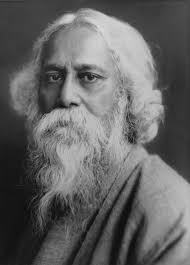Rabindranath Tagore
Rabindranath Tagore
Editorial team
theteacher.in

Rabindranath Tagore, a polymath and the leader of Brahmo Samaj, was born in an opulent family in Kolkata on 7 May 1861. He has bestowed information on us in many fields such as poetry, philosophy, art, theatre and education. In 1877, he was sent to University College London, for his Bachelors in Law, but unfortunately dropped out of school because of lack of interest in the field. His interests were Shakespeare, religion medicine, Coriolanus, Antony and Cleopatra.
At the age of eight, he started writing poems. He wrote only in Bengali until 1912. He travelled to England and translated the latest selection of poems from Gitanjali in English. These selected translations were published with the help of his friend W.B.Yeats. He was the first Non- Westerner to receive a Noble Prize for Literature in 1913. In 1915, he was knighted by the British King George V. Simultaneously, he remained a strong literary and social-political force in India. After the 1919 Jallianwala Bagh Massacre, Tagore renounced his knighthood.
Shantiniketan, a small town near Bolpur in West Bengal, became the 'Visva-Bharati University' as per the vision of Rabindranath Tagore. He dedicated forty years of his life to this educational institution. As a child, he found his formal schooling to be mediocre and boring. After a brief exposure to several schools, Tagore refused to attend school.
His experiences at Jorasanko provided him with a lifelong conviction concerning the importance of freedom in education. So he decided to have a dynamic open model of education implemented in his school at Santiniketan. Tagore started Patha Bhavana, the school of his ideals, whose central premise was that learning in a natural environment would be more enjoyable and fruitful.
He wrote numerous poems, plays, short stories, novels, volumes of essays, initiated and edited various journals, prepared Bengali textbooks, kept up a correspondence involving thousands of letters, composed songs, pictures and sketches. After he received the Nobel Prize, in 1921 the school was expanded into a university. By 1951, it had become one of India's central universities.
The Indian Government and many private firms show respect to Rabindranath Tagore by opening institutions, health centers, and many seva centers worldwide in his name. There is a stamp by the Indian Postage Department released in his name.
Rabindranath Tagore will always be cherished in our minds as a great educator.























